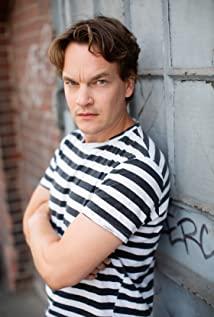**************************************************** ***
Before the trial:
He knew almost nothing about her, but only loved her with the enthusiasm and sincerity of a teenager, "wishful thinking". She asked him to read aloud, and she said she liked to hear him read aloud, and he read more happily than she could. Such a joyful love, pure and true!
The most sincere first love of a 15-year-old boy, complete and selfless devotion, not hesitating to "draw a clear line" with family and classmates, and only for the sake of his blood——i can't live without u!!! And then Everything is easy to understand: whether it's selling stamp albums to travel with her, or kissing her bravely and mischievously in public for the misunderstanding of the restaurant owner during the trip, or being moved to see her cry in a village church; Or every time they quarrel, she will endure the tears of grievance and come back obediently to admit her mistake--let her control and play with her body and spiritual world.
Hannah's departure was indeed a heavy blow. Summer was over, he lingered by the deserted river, took off his clothes one by one, folded them carefully, and jumped into the water. . . Perhaps it was the cold water that kept him awake (the novel says he saw visions of Hannah by the river), and the suicide didn't go ahead.
(Western culture has always been keen to describe this kind of Oedipus-style match between old and young, from the famous book "Red and Black" to the popular modern classic movies "The Graduate", "Farewell to the Classroom" and "Blue Velvet" [Into the body of a mature woman. , symbolizes entering into the intricate, bizarre, responsibilities and even dangerous adult world. It is like a coming-of-age ceremony that comes early and will be unforgettable. From then on, say goodbye to innocence])
****************** ************************************
During the trial: He saw once again that he left his heartless lover without saying goodbye when he was young, she is old! Maybe he had imagined their reunion countless times, but he never imagined that it would be in such a situation-there are two unavoidable truths, Hannah is a Nazi war criminal, and Hannah is illiterate. Which one is more difficult to accept? ? ?
The former was a moral stance, and he was outraged. The latter is an emotional stance where he feels distrusted. He felt that he had been doubly deceived and betrayed.
Hannah confessed to each "crime", and added a lot of details that were not conducive to herself, so that the five guards who were guilty of the crime became angry and pushed the crime against her in unison. , and she can't read at all!
Illiteracy is her biggest heart disease. In order to keep this secret, she lives in isolation for a long time, giving up her love life and career prospects, and now she faces the fate of being framed. Although it may also be because she was illiterate and lived alone, she was isolated from outside public opinion and did not know the propaganda trend after the war, so she "bravely" admitted her past actions, and took it for granted that she had done her duty.
In order to continue to keep her biggest secret and defend her human dignity, Hannah chose to take responsibility for crimes that did not belong to her. This is the biggest tragedy of Hannah as an "individual", and it has nothing to do with whether she is a Nazi guard or not. Never mind, the latter is just a tragedy imposed on her by history/society.
The careful teenager discovered her secret, but did not defend her in court.
(Germany is very different from Japan in its introspective attitude towards World War II. Most Germans feel ashamed, especially the post-war generation, who even have a deep resentment towards their parents. Including later MICHAEL’s reluctance to Returning to my hometown to attend the funeral of my father. "This is a tragedy of the times. The 21-year-old age difference between them is a chasm of the times that cannot be filled. A generation that was brainwashed by the Nazis lacks human understanding, and reflects on the excessive compensation of humanity by the Nazis. generation, which is far greater than the difference between people of two political parties, or people of two religions.”)
No doubt he hated the Nazis as much as his contemporaries, but his attitude towards HANNA was a love-hate relationship, or it was more appropriate to be ashamed of her than hate--he didn't even dare to admit that he knew her, he went As Auschwitz tried to "understand" her, he told the professor that he had evidence but didn't say what it was, that he was on his way to visit her but came back halfway (because of the snow? It was snowing on the day that 300 people died, too )——MD, the night he went back, he fucked the female classmate who liked him (suspected that he later became the prosecutor's wife), either to escape or vent his anger, anyway————he made up his mind, He decided to leave her alone.
I hate his grace and cowardice. He should have told the truth in court—even though Hannah did cause the deaths of those innocents, though Hannah didn't want to be known to be illiterate, though Hannah probably didn't love him and just took advantage of him— ——But the truth is the truth, and no one should bear the consequences for a crime she never committed.
**************************************************** ***After the
trial: He read aloud to her, sent tapes; but never went to see her, and never replied. She taught herself to read and write in prison.
He never went to see her once, had not been back to her letter ---- he can not face this woman, for three reasons:
First, he refused to forgive or not "understand" her fault committed in the war
he I love her, only Hannah as her first love, not Hannah as a Nazi. He can accept her illiterate deception, and she can accept that she doesn't care enough about him, but he can't accept her past "sin", and her "unwillingness to reflect"——the sense of justice is haunting, this has nothing to do with love, But it seriously affected his feelings and attitudes towards her (Hannah, the first love and Hannah of the Nazis, are a whole person!) ——He has always been grumpy, including not testifying for her in court, and Later, the "love" (or "help") of her "layers of screening" in prison.
Second, he felt guilty for not defending her in court. He was paying for
his cowardice, and he was atonement: he used his spare time to read aloud for her, and insisted on reading aloud day and night.
Of course, it cannot be ruled out that there are nostalgic memories of his first love and his youth. (Or take a daring guess, he still loves her passionately in his heart.)
Third, his uncertainty about the relationship that passed away
Whether he still loves her as an adult or not, the impact of that relationship on him is Very far-reaching: his marriage and love have never been smooth, and he has never opened his heart to the people around him, whether it is his wife, lover, or even his daughter.
His "love" or "help" for her "layers of screening":
he read aloud to her, sent tapes; but never went to see her, and never replied to her letters.
(No doubt he was overjoyed when he saw her first letter—she had finally learned to write!)
He was looking for a job and a place for her, who was about to be released. (The small details of the oil painting hanging on the wall show that he is doing it very carefully, not perfunctory.) But when they met, he withdrew his hand and said "very close to the library", when she asked herself After answering, he acquiesced that he would not read aloud for her again, (he held the corner of his mouth reluctantly. He is no longer the unreserved young man).
He still expected her "confession", but she said "what I think, what I think, it doesn't make sense, the dead is gone.". He thought she had no regrets. He would not listen to her any more.
It was this "too much" attitude of reservation, distrust, and impatience that prompted Hannah to commit suicide -- first igniting her hope and then quenching it with his own hands.
(The novel says that she has read a lot of books, including many books about concentration camps, including the book "Eichmann of Jerusalem" written by the Jewish philosopher Hannah Arendt, which discusses exactly what Hannah The nature of Na Schmitz's crime—the "banality of evil"—is a state of thoughtless: an inability to grasp the reality of the moment, inability to imagine and judge. In the movie, she chose to use the layers of books she wrote when she committed suicide to express "she read a lot.")
When he heard Hannah's last wish, he realized what she meant by "I learned to read", but It's too late.
The proud and stubborn Hannah had no hope of begging for forgiveness. She silently atoneed for her sins in her own way—more than 20 years of freedom and a meager legacy may be nothing compared to those who died, but it was something she could do. The most (although "more than 20 years" was "made by herself" in order to maintain her self-esteem).
"I am unwilling and unqualified to grant this forgiveness," said the survivor.
Walking out of Hannah's humble cell where she served more than 20 years, taking her hard-earned 7,000 marks; Mike walked into the survivor's luxurious living room in the United States, but in exchange for such a sentence.
******************************** The
movie is over, but the tragedy of the times may not be completely over, what is left to us is this The myth of how to face the "war criminals" of the year and how to face their children (Germans, Japanese, and us after the Cultural Revolution).
If forgiveness is too difficult, then try to understand: most of the "war criminals" are just single individuals who obey orders or fearlessly in the torrent of history.
If a person can adhere to the universal "correct" moral behavior standard in any social situation, and insist on it at all costs——then TA is no longer a "person", at least not a person. "Social People". TA exists independently beyond the social environment in which TA exists - such people who can be called "saints" can never be the majority of any society.
Another: the law is narrow, the law does not blame the public, and the judge was once a sinner, but five steps to judge a hundred thousand steps is acceptable. In the broad sense of moral judgment, no one can be a judge to judge others, and everyone must judge himself. (It is important to blame yourself with the heart of blaming others, and forgive others with the heart of forgiving yourself = treat others with kindness, and be strict with yourself—there are so many sayings, it can be seen that it is really difficult to do)
View more about The Reader reviews










